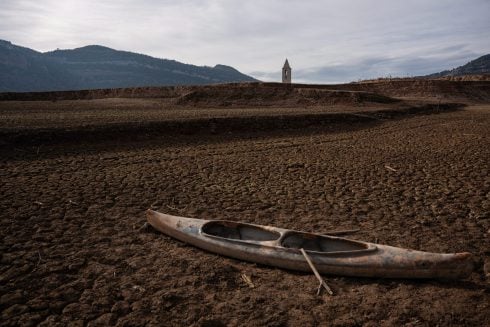WHEN an e-mail arrived from The Climate Project team in Nashville, a tingle went down my spine. I had a feeling my life was about to change. Al Gore, former Vice President of the United States, had offered me a place on his Climate Project programme (www.theclimateproject.org). In exchange, I will give at least ten free presentations in my first year, 2007.
Until last summer, when I watched Gore’s film, I had merely concentrated on my own social responsibility for the state of our planet. Since then, I have become an avid listener of broadcasts on the issue. And my passion for the subject continues to grow.
The latest revelation to hit me has come from the UK, instigated by the Chancellor of the Exchequer, Gordon Brown. It is a major review of what climate change is going to cost us. The author, Sir Nicholas Stern, is Head of the Economic Service.
According to the projections, analyses and scientific reports used by Stern, we have already done too much damage to see an end to global warming in the next few decades. What startled me most was the fact my efforts will make little difference to the planet in my lifetime.
“What we do now can have only a limited effect on the climate over the next 40 or 50 years. On the other hand, what we do in the next 10 or 20 years can have a profound effect on the climate in the second half of this century and in the next.”
That means many of us will not see the end of this problem. Anything we do now will be for our children and grandchildren, unless, of course, we decide to be selfish and ignore the whole issue.
Whatever our stance as individuals, there is no escaping the imminent changes brought on by global warming:
- Summers similar to 2003 when 35,000 people died of heat exhaustion.
- Taxes on transportation – particularly airlines and fuel guzzling vehicles.
- Water shortages, low reservoirs and drought conditions due to lack of rain. This summer some people on the Contraviesa mountain range spent four months without water.
- Damage to crops, and the resulting increases in food prices. Agricultural losses in 2003 reached 15 billion US dollars.
- Ferocious storms, which will double the cost of storm damage and increase insurance premiums.
- Mosquitoes, malaria and other vector-borne diseases moving into our warmer climates.
And that is just the ‘close to home’ impact. There is much more, such as damage to corals in our oceans, extinction of animal and insect species, and human populations becoming homeless due to water shortages and rising sea levels. Unabated climate change could cost us much as 20 per cent of Gross Domestic Product (GDP) each year.
It is not just energy-using products that cause global warming. I have been surprised to learn land and agriculture make up as much as one-third of total greenhouse-gas emissions. Gases emit from farm manure, and the rapid destruction of forests causes a huge problem. Trees normally absorb our emissions, yet we are encouraging their demise through our demand for wood.
Of course, we could sit back and thank Stern for pointing out Russia and Canada will become alternative sources of agriculture. But these countries, too, will eventually feel the negative impact of warming. In the meantime, we can expect southern Europe’s agricultural economy to decline by 20 per cent with a two-degree-Celsius increase in global temperatures.
I have a great love of the sun and I had thought a degree or two of extra warmth was not a bad thing. Wrong. The difference between Ice Age temperatures and present day norms is a mere five degrees. That means the two-degree increase towards which we are heading will be more damaging than it sounds. And the five degree projection for the turn of the century will cause extreme hardship.
It does not surprise me that we, the public, are confused about the whole affair. Within days of downloading the Stern Review summary (www.sternreview.org.uk) I read a United Nations report, due out early next year, will downplay the impact of global warming.
Boutros Boutros-Ghali, former UN Secretary General, has forecasted the next war in the Middle East will be over water. Fighting has already started in Africa. Can it happen in Europe? At a December meeting in the town of Cadiar, people spoke with passion and frustration about others allegedly taking more than their fair share of the water supply. Will current civilised debates over golf courses and plastic greenhouses escalate into wars over who has access to drinking water?
So what, exactly, is Stern recommending so our children and grandchildren have a future?
- Reduce demand for emissions-intensive goods and services.
- Increase efficiency, which can save both money and emissions.
- Action on non-energy emissions, such as avoiding deforestation.
- Switch to lower-carbon technologies for power, heat and transport.
Achieving these cuts in emissions is estimated at 1 per cent of Global GDP by 2050 (about 1 trillion US dollars). On the plus side, Stern points out there will be business opportunities as the markets for low-carbon, high-efficiency goods and services expand. Virgin boss Sir Richard Branson agrees. He sees there is a completely new industry in developing energy efficient fuels, equipment and products.
Our job, as purchasers, is to increase the demand for such products, and to question the source and performance of what we buy.
If you are interested in organising a presentation and discussion for your community, association, business, school or college contact Rosie Sinclair through: [email protected]






